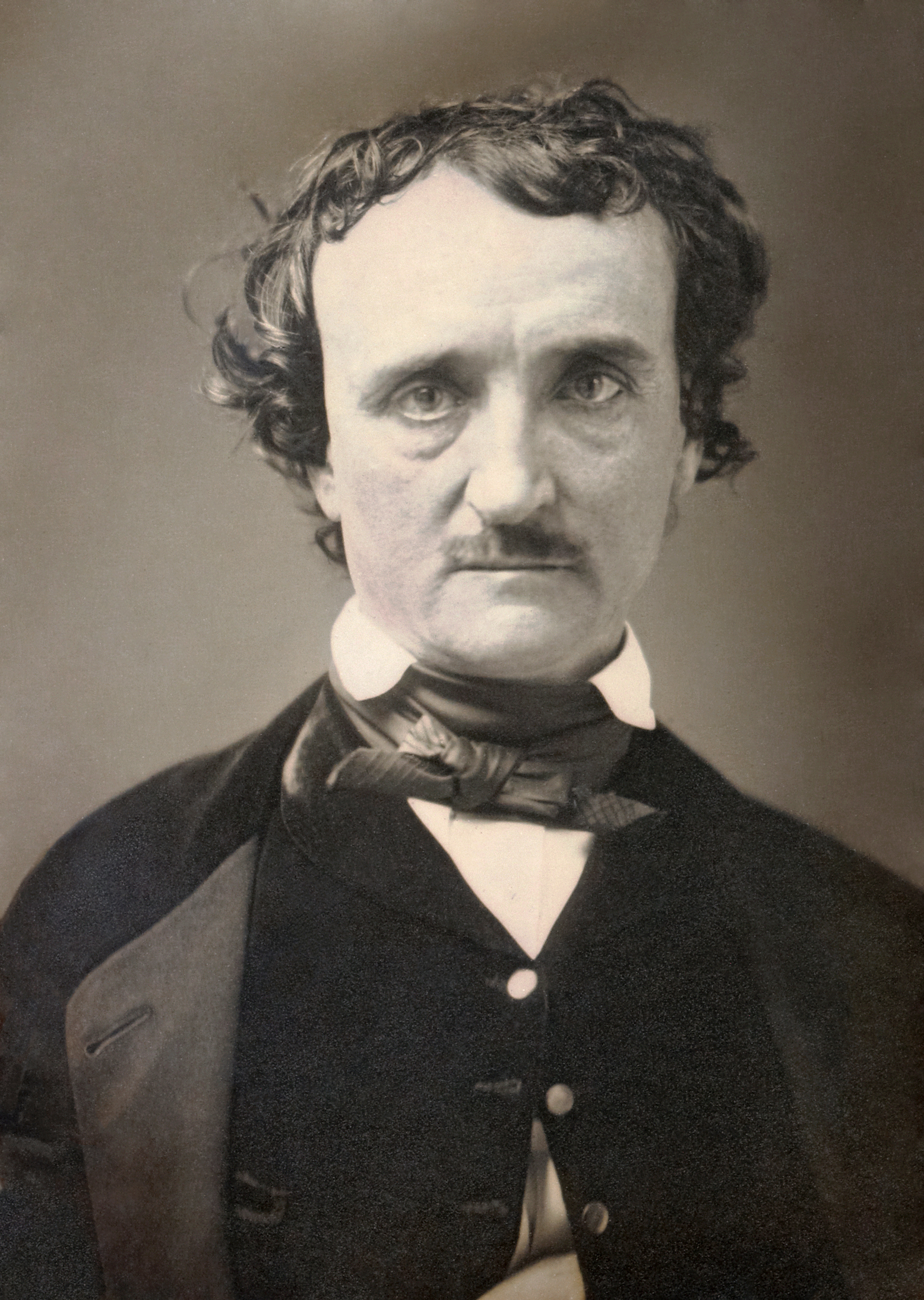"The Philosophy of Composition" (published 1846).
Edgar Allan Poe Quotes
" The Coliseum http://infomotions.com/etexts/literature/american/1800-1899/poe-coliseum-674.txt", st. 2 (1833).
“"Prophet!" said I, "thing of evil! — prophet still, if bird or devil!"”
Stanza 15.
The Raven (1844)
Marginalia http://www.easylit.com/poe/comtext/prose/margin.shtml (November 1844)
“In her sepulcher there by the sea —
In her tomb by the sounding sea.”
St. 6.
Annabel Lee (1849)
" Letter to Frederick W. Thomas http://www.eapoe.org/works/letters/p4902140.htm" (1849-02-14).
"The Conqueror Worm" (1843), st. 5.
The Black Cat (1843)
“I have great faith in fools — self-confidence my friends will call it.”
Marginalia http://www.easylit.com/poe/comtext/prose/margin.shtml (November 1844)
“That man is not truly brave who is afraid either to seem or to be, when it suits him, a coward.”
Marginalia http://www.easylit.com/poe/comtext/prose/margin.shtml (November 1844)
The Black Cat (1843)
" The Haunted Palace http://www.americanpoems.com/poets/poe/17478" (1839), st. 1.
“The best things in life make you sweaty”
Attribution to Poe debunked by the Edgar Allan Poe museum https://www.poemuseum.org/blog/did-poe-really-say-that/.
Earliest known source: a 2009 comment on a South Carolina duck hunting website http://www.scducks.com/forum/showpost.php?s=facea9e6926c3094744eadf268103181&p=513562&postcount=18.
Misattributed
The Raven and Other Poems (1845), Preface
"To One In Paradise", st. 4; variants of this verse read "where thy dark eye glances".
" Sonnet. To Science http://library.thinkquest.org/11840/Poe/science.html", l. 12-14 (1829).
But — this little book must be true to its title.
Marginalia http://www.easylit.com/poe/comtext/prose/margin.shtml (November 1844)
The Black Cat (1843)
“Can it be fancied that Deity ever vindictively
Made in his image a mannikin merely to madden it?”
"The Rationale of Verse", III (1848); this is comparable to: ""What! out of senseless Nothing to provoke / A conscious Something to resent the yoke", FitzGerald, Omar Khayyám.
St. 5.
Annabel Lee (1849)
" The Happiest Day http://www.internal.org/view_poem.phtml?poemID=190", st. 1 (1827).
The Black Cat (1843)
" Letter to Mr. B — http://www.lfchosting.com/eapoe/works/essays/blettera.htm", preface to Poems (1831).
"A Dream Within A Dream" (1849).
" Letter to Mrs. Whitman http://www.lfchosting.com/eapoe/WORKS/letters/p4810181.htm" (1848-10-18).
“And Darkness and Decay and the Red Death held illimitable dominion over all.”
"The Masque of the Red Death" (1842).
The Philosophy of Composition (published 1846).
“A poem deserves its title only inasmuch as it excites, by elevating the soul.”
The Poetic Principle (1850)
William Wilson (1839)
William Wilson (1839)
